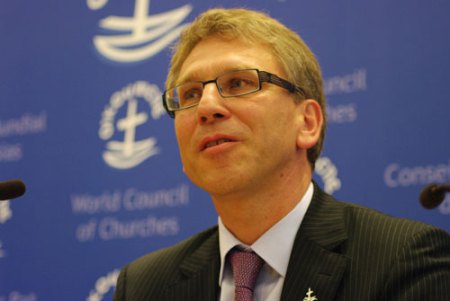Nikolić: Priština interprets agreement as it likes
Source: Tanjug
BELGRADE -- Serbia could lose an opportunity to get
an EU talks date because Priština and some countries of the EU interpret
the Brussels agreement as it suits them.
Tomislav Nikolić (Beta/AP, file)
This is according to Serbian President Tomislav Nikolić.
He
told Radio and Television of Serbia on Wednesday the country had done
everything to get a start date for the accession talks, but that the
opportunity could be lost because of the Kosovo Albanians' insistence on
interpreting the agreement between Belgrade and Priština their way.
“It is time for the people leading the EU to say what they want,” he noted.
“If Serbia has sent its top officials to the negotiations, it is also
time for the EU to stop hiding behind its low ranking officials and say
what it wants,” Nikolić pointed out, adding that Serbia had done
everything having complete faith and desire to succeed.
The
president stated the government and himself had to erase bad stereotypes
about Serbia in the past year, but still managed to open doors no one
had knocked on before.
“Serbia faces new challenges now, a new
concept,” he said, adding he would support the government in
implementing that concept.
“The focus in the past year was on
Kosovo and the battle against corruption,” he said, stressing that the
government should now turn to the economy.
“The government has not drained the people's patience yet,” the president said regarding economic issues.
Nikolić believes the announced investments in agriculture and energy
will bring results but that the government should achieve more in the
social field.
He called for harmony among Serbs and all the
people of Serbia, emphasizing that it was the most important thing in
the country and that he was certain Serbia would cope with the current
difficult situation.
"I hope the EU will not stop us (in that)
simply because the Albanians want a country. If it comes to that, we
will have a lot of trouble, otherwise everything will be much easier,"
Nikolić concluded.
Nikolić stated that Serbs had to agree on
the implementation of the agreement reached by Belgrade and Priština,
adding that the process leading to Serbs from northern Kosovo becoming
the citizens of a non-existent state (of Kosovo) had been stopped.
"We Serbs have to reach an agreement. I cannot imagine us making an
agreement with Albanians and not making it with the Serbs in northern
Kosovo, who have not been left in the lurch," Nikolić stressed.
The president explained that by accepting the Brussels deal the
constant threat of intrusion and imposition of powers by (Albanian)
Kosovo authorities in the Serb-majority north of the province had ceased
to exist.
“All the institutions that the Serbs today have in
northern Kosovo and that Albanians and the EU label as parallel, will
become formally official once the Brussels agreement is implemented, and
no one will ever again be able to touch them,” Nikolić pointed out.
He added that police in northern Kosovo, claimed to be illegal, would
become official as well, stressing that the ethnic composition of the
police would match the one of the population.
Nikolić also said
that the intention had been to continue the talks on energy,
telecommunications, and freedom of movement "until the Serbs become
citizens of Kosovo and of a non-existent state."
"We stopped
this and we now have an agreement which some Serbs, especially in
northern Kosovo-Metohija, say is not good, but Albanians are not
satisfied with it either," the president said, adding that this was why
no agreement on the implementation of the deal was reached in Brussels
on Wednesday.
"The talks were interrupted, because the Albanian
plan to completely forget about the Brussels agreement was not
accomplished," he pointed out, and explained that the Albanian party had
asked for abolition of the so-called parallel institutions and
creations of interim ones, without Serbs participating, all before the
forming of a community of Serb municipalities in keeping with the
agreement.
Commenting on the claims by critics of the agreement
that the negotiations should have been postponed, Nikolić said Serbia
could not wait and that the time for an agreement was right.
"Serbia was deceived, or the Federal Republic of Yugoslavia (after the
NATO bombing of 1999), because it believed the conflict was frozen, that
the situation remained as it had been in terms of international
relations," he stated.
Nikolić explained he would be willing to
wait for an opportunity for a better solution if the UN and EU followed
Resolution 1244 and guaranteed to Serbia that the conflict would remain
frozen.
“However, since the first high representative left,
everything has been done for Kosovo to become independent and a member
of international institutions,” he pointed out.
"We could not
wait for the situation to change, because the Albanians would have
attempted in the meantime to expand to northern Kosovo and no one would
have been able to stop them," he said.
“The Belgrade team for
the talks in Brussels suffered problems and blackmail, but they held out
through all that and protected the national interest, but someone then
shows up in Serbia and says they worked for the Albanians,” Nikolić
remarked.
He stressed he would never recognize Kosovo, nor
allow someone to recognize it, and that everything that was agreed
during the talks with Priština was in line with the Constitution and
could be part of a substantial autonomy for Kosovo.
According
to the president, after the agreement on the normalization of relations
with Pristina was initialed in Brussels on April 19, he wrote to all the
countries that have not recognized Kosovo to explain what it was that
Serbia accepted.
When asked if he would follow the decision by
the Constitutional Court if it said the agreement was in violation of
the Constitution, Nikolić stated he would. He explained he had asked the
court and the parliament speaker to wait for an agreement with Priština
that would result in a law on a substantial autonomy for Kosovo and
then decide on whether the law was according to the Constitution.
Commenting on the calls for the people to vote on the agreement,
Nikolić said he was not avoiding a referendum, but that it would be
unpleasant to create a conflict between the Serbs in northern Kosovo and
the other Serbs, because things would probably be interpreted as Serbia
being unable to move forward unless they accepted what the government
proposed.

























